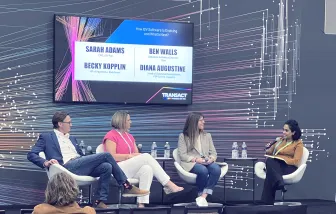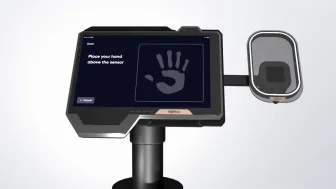Self-service: a booming industry with innovation at its heart
Listen to this article

Vincent Bernard, Head of Unattended & Self-Service Business at Ingenico, shares his expert insight on the global self-service market. What are the key trends we are seeing and how is Ingenico innovating to meet the specificities of this market?
The self-service market has been growing year-on-year for the past 30 years and shows no sign of slowing. In fact, in recent years the use of self-service has accelerated, boosted by the covid crisis. There are distinct market segments, each with its own specificities. To give an overall picture of this diverse industry, Vincent describes each vertical and the most recent related innovations within each.
What are the key self-service verticals in the market?
- Let’s begin with the most well-known vertical: vending
Vending is a huge market, mainly in Europe, North America and Japan, where you can buy any number of things from a vending machine. Low-value vending offers products such as drinks and snacks, while high value offers more expensive products such as electrical items.
We are seeing growth in this market as the demand for cashless payments increases. The scale and variety of uses is also increasing, as we see solutions such as pizza and bread dispensers appear on the market.[1]

Did you know?
In Austria, an innovative solution was developed to introduce the sale of items with an age restriction in the vending space. Through using the same links to the bank needed for payment authorisation, a check against the card holder’s bank details can confirm that they are 18 or over. This has so far proved to be successful for tobacco, with potential for other applications in sales such as alcohol.
- Now let’s move to the most mature payment segment: transportation and parking
For many years you have had to pay to park your car. Off-street parking is where there is an entry gate and exit gate with a kiosk to pay. These are becoming more and more numerous while on-street parking kiosks numbers are more or less stable.
These mature verticals require ruggedised terminals designed for outdoor and intensive use. For open payment use cases (bus, train or metro) the contactless readers must be certified with both payment standards and transportation standards.
Did you know?
In Australia Ingenico recently installed open readers where people can tap their card in and out of the parking and they are charged for the time that they spent there. In transportation, likewise, Ingenico’s technology has been used in open payment projects where customers use their own payment card as a transportation ticket. Each time you use the transport you tap your card, and at the end of the week or month the best fare is calculated based on your usage.

- A new promising vertical is emerging: EV charging
We are seeing some new verticals appearing such as Electric Vehicle (EV) charging which is one of the most promising new verticals. Ingenico is focused on high-speed chargers which take only card payment, and thousands of these are being installed each year responding to new legislations making them mandatory. We have recently launched a new high-speed terminal for the North American market – the Self/3000. The EV market will evolve quickly in the coming years, and we expect demand to increase rapidly. [2]
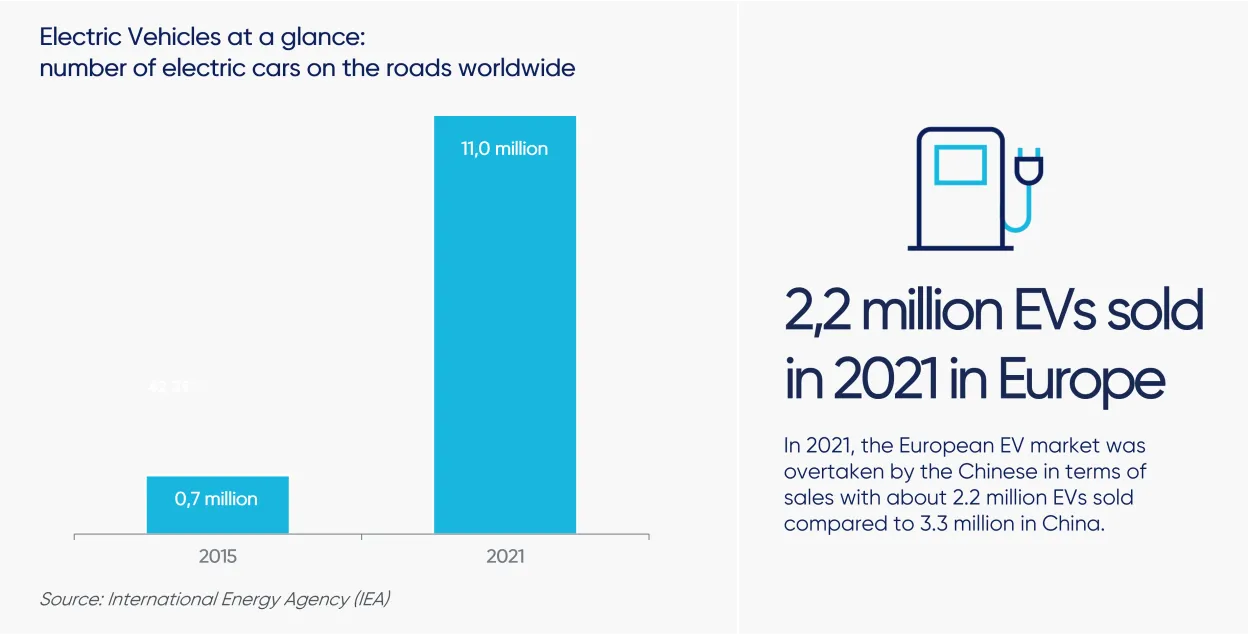
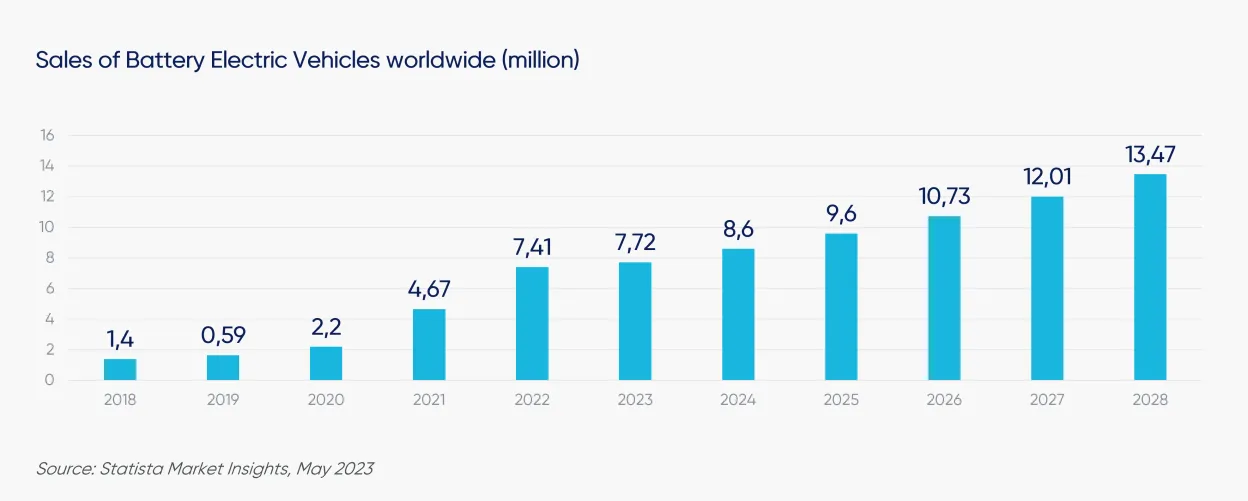
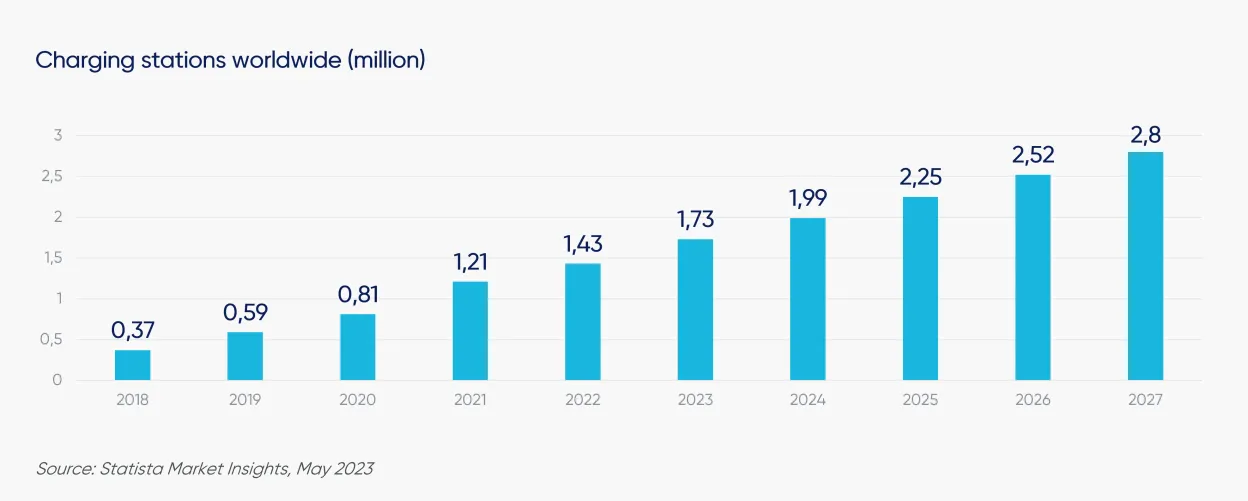
Do you want to know more?
For an interesting perspective on EV chargers card payments solutions, I recommend reading this article by my colleague Bruce Rasmussen, Director of Sales, Strategic Verticals, Ingenico US.
- The remainder of the self-service market is scattered
There are many verticals that I didn’t mention above that make use of self-service devices for payment. To name a few examples, you will see kiosks for food ordering and delivering, and in museums, stadiums, airports and hotels. Self-service kiosks are becoming increasingly popular, driven by the popularity of contactless payment and the convenience they offer. The self-service kiosk is estimated to grow by USD 8,262.72 million from 2022 to 2027, with a CAGR of 12.61% during this period.[3]
So, how does Ingenico meet the demands of this diverse market?
Our motto is: no “one size fits all” in the self-service industry. Just as there many kinds of cars suitable for a variety of different uses, no one terminal can meet the demands of all verticals in the self-service sector. This is why, at Ingenico, we developed a full range of terminals based on the same core, to target and fulfil any specific self-service requirement.
You can get an overview of our self-service offer through watching this video:

Where will the future take us?
As the market evolves, needs change and technology has to be flexible, secure and empowering. Ingenico’s self-service solutions continue to innovate to anticipate and shape demand. I see the introduction of Android to the market as the next powerful catalyst. The focus of self-service will then move way beyond payment and I’m excited to see where this will lead us.
Sources:
[1] Björkman, A and Andersson, R (2020) ‘Connected Vending Machines’, 4th Edition, Berg Insight: Gothenberg.
[2] Jansson, C (2023) ‘EV Charging Infrastructure in Europe and North America’, 3rd Edition, Berg Insight: Gothenberg.
[3] Technavio (2023) ‘Self-service kiosk market size is set to grow at a CAGR of 12.61% from 2022 to 2027, Increasing adoption of contactless payment to drive growth – Technavio’. Available at: https://www.prnewswire.com/news-releases/self-service-kiosk-market-size-is-set-to-grow-at-a-cagr-of-12-61-from-2022-to-2027--increasing-adoption-of-contactless-payment-to-drive-growth---technavio-301768102.html


